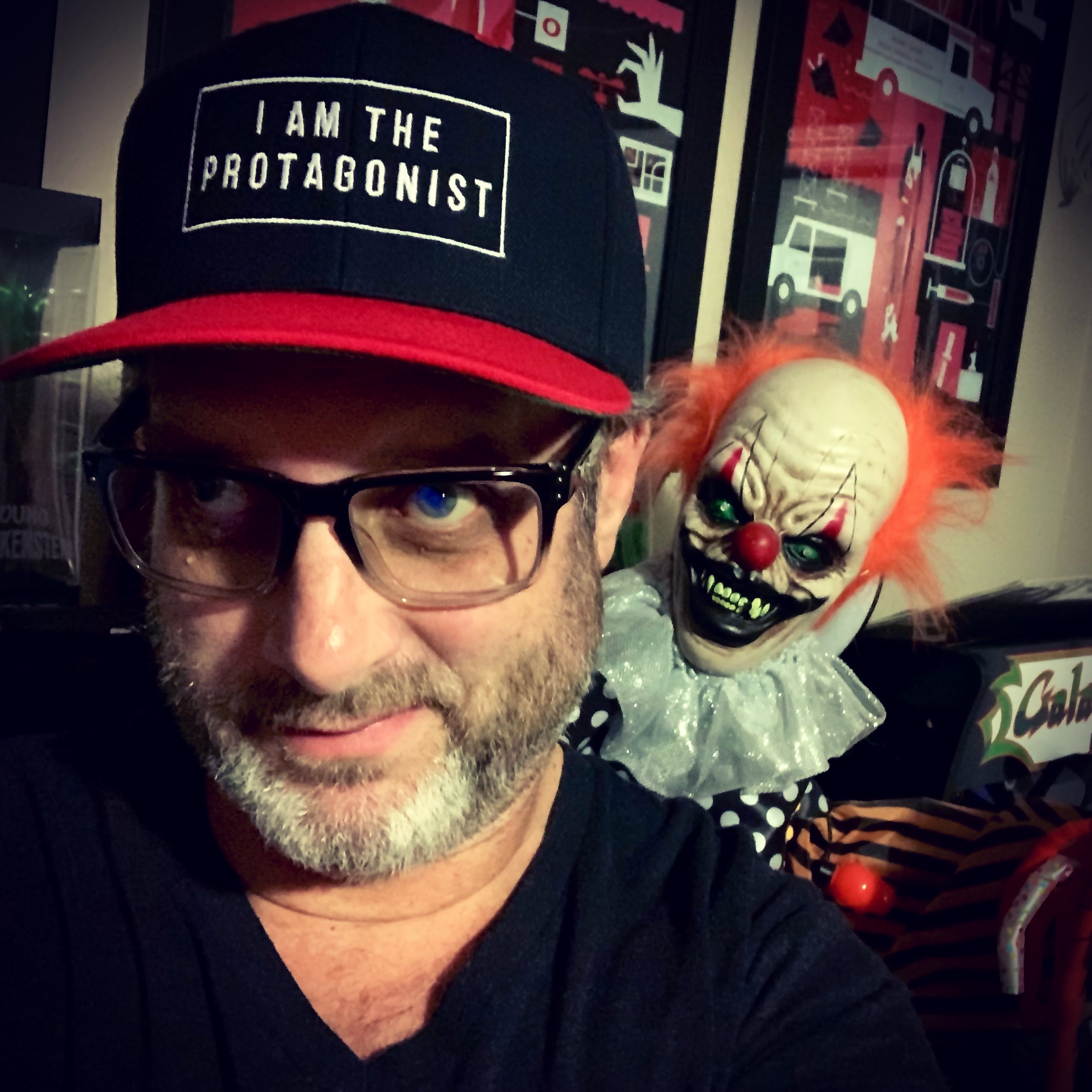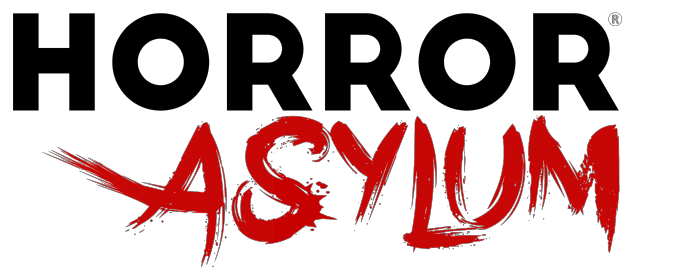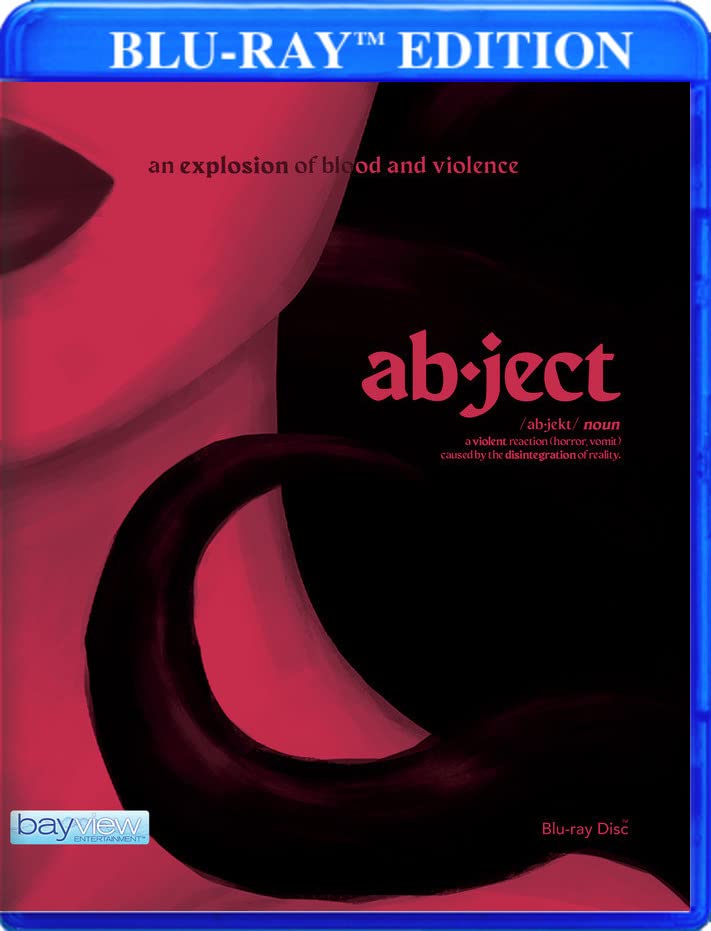The title for this movie, Abject finds the bulls eye with the lowly state of affairs presented in this film. The story tells the tale of a young couple’s floundering marriage and somewhat disjointed attempts to reconnect, at the guidance of a somewhat lecturing and aggressive therapist who offers questionable advice. Writer, producer and director David R. Williams presents a world of pain, betrayal and depression in this quite stark and stripped down story.
Abject opens with a lengthy visit with ‘Husband’ (Joe Gallagher) and ‘Wife’ (Helena Simon) at the office of the ‘Psychologist’ (Andy Rich). While there are no major revelations here, there is plenty of tension and animosity between ‘Husband’ and ‘Wife’. Notable that there are no actual names referenced for the characters in the credits, just these generic titles. This only adds to the disconnect of what is taking place but the anonymity of these people also inhibits the viewer from connecting to them in a more human, empathetic way. It’s a degree of separation that makes them seem more cardboard cutouts rather than actual human beings.
During the opening scene therapy session, the highly animated Psychologist insists that the couple steal away for a quiet retreat to a beautiful home in the forest to rekindle and reconnect. He also insists on no cell phones or attachment to the outside world, however there is one land line at the house for emergencies. It soon becomes apparent that they are reeling from a recent tragedy which has been a wedge in the marriage. Initially the Psychologist unrealistically demands they take a full month for this little get away. After protests by the couple due to the excessive time commitment, everyone settles on taking a week to work things out. In a fairly odd move, just before releasing the couple, the Psychologist Presents them with two small medicine tins and explains they contain psychotropic drugs which may be helpful. Right… what possibly could go wrong?
Up to this point, the couple seem hardly aware or even interested in acknowledging each other’s presence aside from some snarky comments and just a general bitter vibe between them. It is quite obvious that they would rather be anywhere else than in each others’ space.
Upon arriving to the house in the forest, they each meander around the house casually checking out their new surroundings. This is pretty much the gist of the largest chunk of the middle of the movie. The pace is quite slow with a series of verbal and body language daggers thrown back and forth between Husband and Wife. Husband (Joe Gallagher) at times does give off a young Billy Zane vibe with his overly-intense lines but it does seem that he, at least, is trying to salvage the damaged marriage at least a little. Having cozied up to the well stocked bar at the house right off, perhaps his mood swings are alcohol induced? That element is never quite explored however it is curious that Husband does indeed drink like a fish, yet refuses to try the ‘psychotropic’ drugs given by the Psychologist. On the flip side, Wife adamantly will not drink for most of the movie but she jumps right in on trying out the drug. Hmmm.
As the story progresses, we learn a bit more about the trauma that the couple has endured. The root of all this angst is the loss of the couple’s young child which would be incredibly tragic and stressful for anyone to endure. The blame-game continues to escalate, albeit at a plodding pace with revelations about past behaviors of both that culminates in a not-so-surprising tragedy of its own. We get to finally find out what levers were pulled to bring out the inner monsters of these two people and lead them down this dark hole of bitterness, hate and revenge. This is where the movie should have wrapped, but it continues on a bit longer with one final visit by the good Psychologist which really lowers the tempo as more a distraction than serving the story. This epilogue scene is unnecessary.
Visually, the cinematography is functional and gives a bit of a ‘fly on the wall’ feeling as you are stuck with these two miserable people throughout. Essentially the shots were the usual steady tripod shots or wildly shaky handheld shots. Both techniques are great in their own place, but the contrast here can be jarring. The color palette and composition is straightforward without much concern for overly creative shots, consistent subject focus or other factors to give the audience some visual treats.
There are some strange shot sequences, however. For example, in some of Wife’s dream sequences, we are unsure what is going on – is she simply having recurring nightmares or is this an effect of the psychotropic drugs (since that is never really explained other than seeing her pop a pill on her tongue in a very long close up shot). Lots of strobe lights with Wife rolling around in bed alone, grappling with a long tentacle-like creature in sort of a pseudo-sexual act creates more questions than are answered.
The one huge missing piece to the puzzle is the absence of a soundtrack or effects. The audio seems to be right off the camera as the ambient background sounds and noises change from shot to shot, as does the audio quality of the dialog. Many scenes which would have been entirely more impactful, such as the aforementioned bed/nightmare/tentacle scenes, are for the most part silent. These scenes are literally begging for audio.
Overall, there is a story to be told here, even though somewhat confusing and long to get to the point. The hot/cold intensity of Husband who seems to be trying to work on the marriage one minute but then he is ready to throw in the towel the next makes you doubt his motivations all along. Wife’s indifference and dead-blank stare for the first half of the movie finally sees some blood enter her veins but in more of a wailing, irritable, fly-off-the-handle way that proves she has less than zero interest in making things right and deeply wallowing in her misery. These are not good people who reveal that they have indeed created their own worst nightmares with their hideous and despicable actions.
Combined with long shaky handheld camera shots following the characters around the house, up and down stairs, standing silently holding sharp knives in the kitchen (which never ends up with a knife being a weapon), there is some misdirection here. Is it intentional or just a byproduct of the shot? Either way, there are some interesting moments here and there as this story slowly unfolds, but by the time we get to the meat of things, it’s easy to have zero empathy for any of the characters while you are left wondering what the final ‘family’ scenes are telling you. Total mental collapse? Drug and alcohol fueled mania? Supernatural?
Final note: The biggest cheer moment near the end is seeing Husband FINALLY rip and destroy that gray turtle neck sweater he wore through the entire movie even though it spans several days. You will find yourself asking why he never changes clothes even though Wife does, and it becomes a bit of a distraction.
ABJECT is out now on Blu-ray (Region Free) in the USA and Prime Video UK and Prime Video USA from BayView Entertainment.

Terry is founder of Black Dog Filmz based in Florida and creator of the award winning ‘Harlow’s Haunt’ movie. He has been involved with creative filmmaking, movies, music videos and commercial projects for more than 20 years as a tech, drone and specialized small camera systems professional. A lifelong horror fan, Terry combines the behind-the-camera elements with creative and editorial writing to support filmmakers and fans everywhere. Terry has written for such national publications as Aircraft Owners and Pilots Association Drone News and hosted the popular Romero Pictures Indie Brigade Drone Cav podcast centered on aerial cinematography and various product and content reviews.

